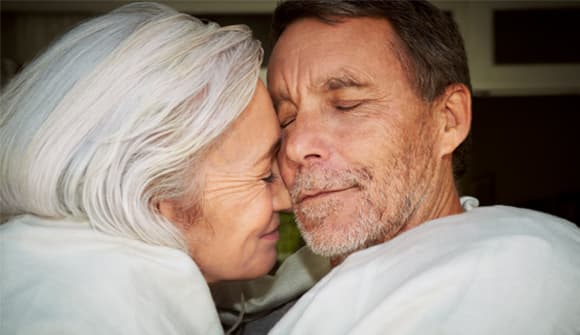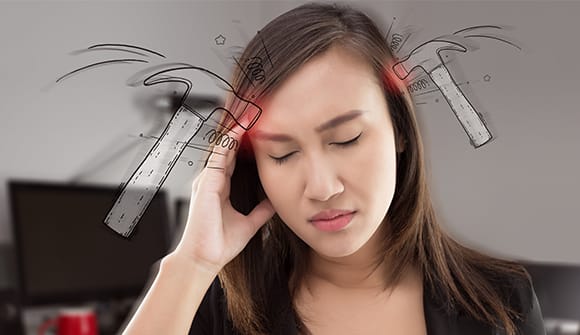Intimacy after stroke
How to navigate barriers in the bedroom and beyond.
Article Date:

Stroke recovery is a difficult process, both physically and emotionally. Survivors and their loved ones must overcome a variety of new challenges on the path to healing, including changes to romantic relationships and intimacy.
Fortunately, it’s entirely possible to have a healthy sex life after stroke. In fact, physical intimacy can actually aid recovery by enhancing a couple’s relationship, improving cardiovascular health and helping both survivor and partner ease back into a normal routine.
“Regaining sexuality after stroke is very important to one’s overall health,” said Karen Sandbach, PhD, a neuropsychologist at Baptist Behavioral Health. “It’s important to note that intimacy and sexuality are umbrella terms that include a variety of activities, not just the act of sex. There are many indicators of physical and emotional intimacy to explore in romantic relationships, which gives survivors more freedom to find their way when reconnecting with their partner.”
Adjusting to change
The lasting emotional and physical changes from stroke can alter the dynamics of an intimate relationship, affecting both survivors and their partners. Some of the most common concerns include:
Fear of another stroke: While survivors should be cautious of physical activity, sex isn’t considered a specific risk for another stroke. But, each person should consult his or her primary care physician first to make sure other underlying health conditions are under control.
Immobility: It’s common for survivors to experience muscle weakness or paralysis on one side of the body, so couples may need to experiment with different activities or positioning until they find something comfortable and enjoyable. Physical and occupational therapists have a prominent role in rehabilitation and are great resources to consult for further questions and guidance.
Impotence: Stroke is rarely a direct cause of sexual impairment or dysfunction. Struggles with performance may be due to another health condition or a side effect of medication, so it is best to seek further evaluation by a physician.
Role changes: Survivors may be more dependent on their partners for help with daily routines. If a partner has taken on new responsibilities as a caregiver, the survivor may worry about how he or she is perceived sexually. The partner may also struggle with shifting between roles. It’s important to consider how caregivers are doing, and whether they are able to take time for leisure with their stroke survivor partner and on their own. Sometimes, couples may need outside help with caregiving so they can maintain their relationship as partners.
Communication: Survivors may experience speech or language difficulties post-stroke. Couples can learn new ways to express and communicate their love nonverbally, such as touching, caressing and using gestures.
“Communication and openness with each other is key to overcoming concerns about resuming intimacy,” Dr. Sandbach explained. “Most people are able to figure out a path on their own, but if one partner is experiencing difficulty adjusting to the situation, he or she should seek help. This could be with someone from church, a professional counselor or a group like BrainStormers Stroke Support Group.”
Starting again
“It’s normal for survivors to have anxiety about returning to sexual activity the first few times following a stroke,” said Dr. Sandbach. “Fortunately, the antidote to that fear and avoidance is to give it a try, when you both are ready. Go slowly. Give yourselves plenty of time, and be open to the experience and having fun.”
Dr. Sandbach added, “You may be hesitant at first, but that nonverbal communication will help you work together and get more comfortable.”
Baptist Stroke & Cerebrovascular Center is the regional epicenter for advanced diagnostics and treatments for strokes and other cerebrovascular conditions. If you or a loved one has experienced a stroke or you are simply looking to learn more, call 904.420.4844. If you and your partner would like a mental health professional to help you reconnect, you can schedule an appointment with a Baptist Behavioral Health specialist at 904.376.3800.



